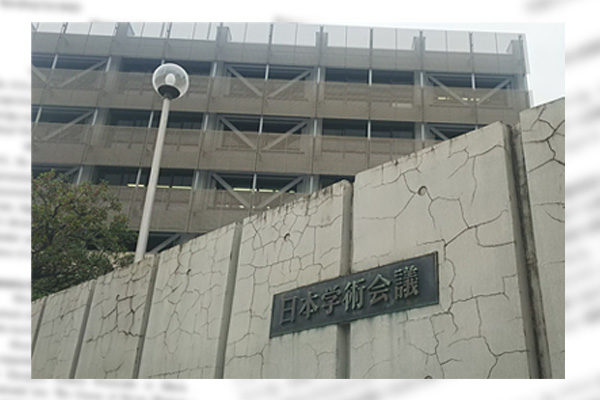The raison d'etre of the Science Council of Japan has become a red-hot issue. A law to create the SCJ was enacted in 1948. Then, the General Headquarters of the Allied Forces viewed Japan as the enemy of world peace and aimed to transform Japan into a weak country that would never stand against the world.
“We, the Japanese people, […] resolved that never again shall we be visited with the horrors of war through the action of government […] do firmly establish this Constitution,” says the preamble of the Constitution of Japan that was drafted by the GHQ and put into effect in 1947. This means that the constitution was established to prevent the Japanese government from starting any war of aggression again to cause damage on the people.
The SCJ was established with the same spirit. The SCJ has strictly monitored the government under a doctrine that the government is inherently bad, while trusting foreign countries running counter to Japan’s national interests under another doctrine that they are inherently good. Constitutional scholars dominantly and grotesquely still argue that the Japanese Self-Defense Forces are unconstitutional, while the SCJ has publicly banned scholars from doing research that would contribute to national defense.
Politically biased academia
The academic circles of social science and cultural science in Japan are politically biased. They dominantly views the government as a would-be criminal and tries to strictly monitor government activities, although some scholars are free from such dominant atmosphere.
In the late 1980s when I began to study wartime comfort women and North Korea’s abduction of Japanese citizens, my study was almost completely isolated in the academia. My theory on comfort women was expected to be recognized by some members of the academic community at last when the Asahi Shimbun newspaper admitted in 2014 that some of its reports on comfort women were wrong. In fact, however, I was forced to resign a university with which I was affiliated a few years ago due to a protest by a member group of the university’s board of directors.
When Japanese citizens grew interested in the North Korean abduction issue following five abductees’ return to Japan through then Prime Minister Junichiro Koizumi’s visit to North Korea in 2002, I applied for a “research grant” in 2005 for a comprehensive study on the abduction issue from the Japan Society for the Promotion of Science. But my application was not accepted.
Under the Act on the JSPS that belongs to the education ministry, the education minister “closely communicates with the SCJ on JSPS operations.” This means that the JSPS is required to cooperate with the SCJ. Big names of academic community on respective fields serve as screeners to decide whether to accept such applications for the research grant. Until 2004, the SCJ recommended screeners, leading the dominant academic atmosphere to be reflected in the screening.
Rejection of some SCJ member candidates was legitimate
The academia must be normalized to reconstruct Japan as a normal liberal democratic country. The Suga administration has taken a step to that end by exercising a legal authority to reject some of recommended SCJ member candidates. The ruling Liberal Democratic Party has begun to reconsider the SCJ’s way of being. A legislative action should be taken to dissolve the SCJ. This would lead to the normalization of the academia.
Tsutomu Nishioka is a senior fellow and a Planning Committee member at the Japan Institute for National Fundamentals and a visiting professor at Reitaku University. He covers South and North Koreas.


